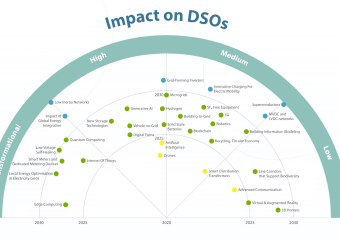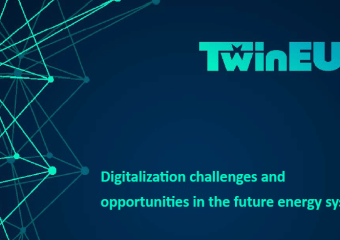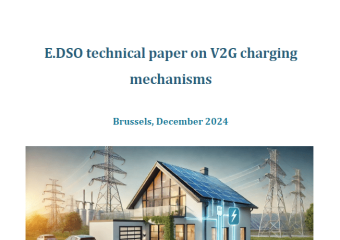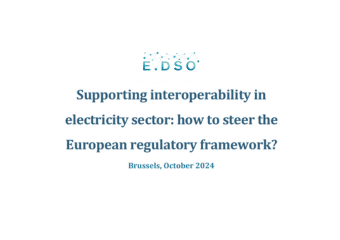State aid guidelines for energy and the environment and state aid framework for RD&I – EDSO response to European Commission consultations
EDSO for Smart Grids welcomes the addition of energy infrastructure in the state aid guidelines for energy, but is concerned over the European Commission’s inclusion of the PCI criteria in the rules for national support covering the years leading up to the important 2020 climate and energy milestone. Wide-scale smart grid development at local level, and not just across borders, is imperative for the achievement of the EU’s key objectives of completing the internal energy market as well as its energy and climate targets to 2020, 2030 and 2050. Public support to this development will help to ease the cost pressure on households and businesses in a time when many factors are pushing energy costs upwards.
European DSOs are profoundly affected by the changing nature of electricity generation across Europe. Substantial amounts of public money has been allocated to support renewable energy generation, but now is the time to support the integration of these renewables into our networks in ways that will safeguard security of supply and quality of service, while keeping costs down. It has been recognised in a number of European Commission publications that smart grids are the solution not only to integrating more variable and distributed energy generation, but also to having a fully functioning and integrated internal market for electricity, where the consumer plays an active role.
In order to deploy smart grids, there is a great need for investment in research, development and innovation, where large-scale demonstration is a prerequisite, as well as for investment in actual deployment. Regarding RD&D and innovation, EDSO appreciates the European Commission’s focus on grids at distribution level in the ENERGY call 2014-2015, under Horizon 2020. EDSO would also like to highlight the need to continue the important coordination of funding for smart grid RD&D and innovation undertaken by the European Electricity Grid Initiative (EEGI), the European multi-stakeholder industrial initiative under the Strategic Energy Technology Plan (SET-Plan) where distribution and transmission system operators are cooperating. Furthermore, EDSO thanks the European Commission for its revised European Regional Development Funding (ERDF) rules for the next six years, which give new potential for public spending on smart grid demonstration projects. DSOs are leading on smart grid RD&D, but being regulated entities would not have been able to do so without the support of such EU grants, nor without government backing.
However, some European funding policies, despite acknowledging the need for wide-scale smart grid deployment, do not reflect the reality of funding these projects by either a) ignoring the particular regulatory barriers for DSOs in the various member states when designing funding rules, but also by b) excluding public financial support to smart grid development at local level based on the assumption that only cross-border projects can be considered to be in the EU’s “common interest”. The draft state aid guidelines for energy and the environment are an example of this. EDSO would like to emphasise that:
- The European Commission estimates that €400 billion is the cost of upgrading Europe’s electricity and gas distribution networks in the ten year period to 2020. The support of public funding to smart grid development can contribute towards easing energy costs for households and businesses in a time when many factors are pushing them upwards.
- Most European funding policies for electricity networks focus on cross-border projects. This ignores firstly the importance of grid stability at local level (where the majority of renewable energy is connected) for a stable transmission network, but secondly that wide-scale deployment of smart grid solutions at local level are crucial for the completion of the internal electricity market in Europe.
EDSO would like to refer the European Commission to the recent European Parliament report, adopted on February 4th 2014, on the Local and Regional Consequences of Smart Grids, but also to EDSO’s comments, when further developing its state aid policies.






